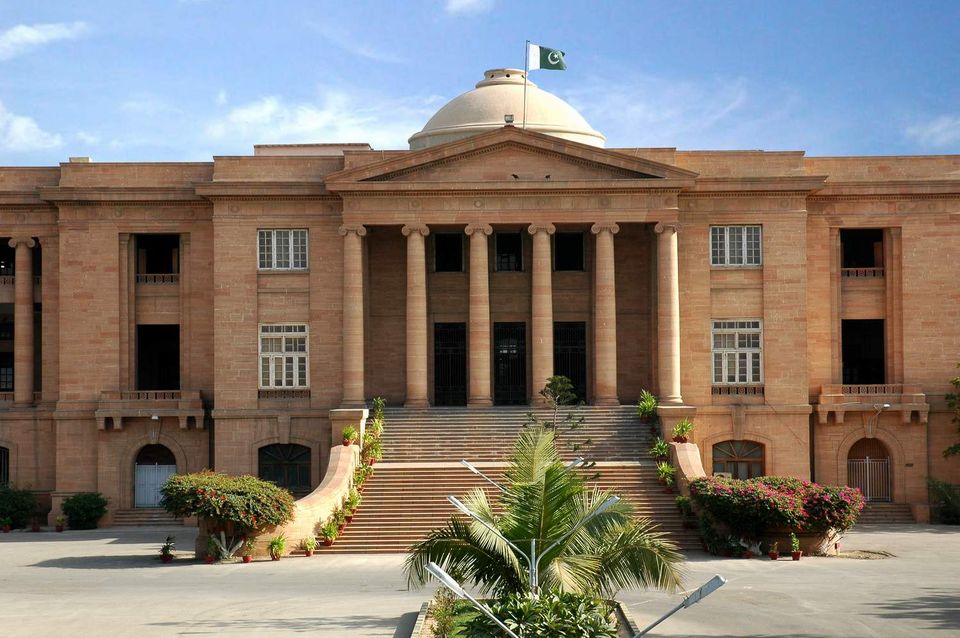Leave to Defend may be Granted in Recovery Suit under Order XXXVII CPC when there is some Substantial Question of Fact or Law which needs to be Tried or Investigated into, then the petitioner is entitled to leave to defend --- SHC
Islamabad 02-02-2024: While deciding application [C.M.A. No.10986 of 2018] Under Order XXXVII Rules 2 (2) & 3, C.P.C. r/w Section 151, C.P.C., whereby the Defendant has prayed to grant him unconditional leave to appear and defend the instant suit enabling him to file Written Statement and contest the matter accordingly; Mr. Justice Arshad Hussain Khan of The High Court of Sindh, Karachi observed that the plaintiff for recovery of amount under the subject cheque has filed the present suit under Order XXXVII, C.P.C. which is a special dispensation. Under this Order, procedure has been provided to file and proceed with the suits filed on the basis of negotiable instruments, as contemplated in the Negotiable Instruments Act 1881; unlike the regular civil suits where general procedure provided under the C.P.C. is followed. In a suit filed under this Order, which is summary in nature, under Rule 3 of the said Order, a defendant who has been served has to seek leave to appear and defend the suit and once the same is allowed, the suit shall be converted into a regular suit and will be decided in accordance with the general procedure prescribed in C.P.C.
The principle for grant and refusal of leave to defend a suit was laid down by the Honourable Supreme Court in the case reported as Fine Textile Mills Ltd., Karachi v. Haji Umar (PLD 1963 SC 163), wherein it is held that:-
"In a suit of this nature where the defendant discloses upon his affidavits facts which may constitute a plausible defense or even show that there is some substantial question of fact or law which needs to be tried or investigated into, then he is entitled to leave to defend. What is more is that even if the defense set up by vague or unsatisfactory or there be a doubt as to its genuineness, leave should not be refused altogether but the defendant should be put on terms either to furnish security or to deposit the amount claimed in Court.
In the present case, the claim of the plaintiff is that the plaintiff stood guarantor of the finance facility acquired by the defendant, however, when the defendant committed default in repayment of loan amount to the Summit Bank, the bank filed a suit bearing No.22/2016 against the defendant and plaintiff. The defendant also filed suit bearing No.29/2016 before this Court against the Bank and the present plaintiff. However, in order to facilitate the release of pledge stock, the defendant contacted the plaintiff and issued subject cheque of Rs.450 million which amount was to be paid by the plaintiff to the bank. The said cheque was deposited by the plaintiff in his account however same was bounced/dishonored.
No doubt, under section 118 of the Negotiable Instruments Act, presumption is attached to negotiable instrument and the burden lies upon the person denying the same to prove contrary but this presumption is rebuttable by evidence. In the present case, there is nothing available on the record which could show that there was any agreement/arrangement entered into between the plaintiff and the defendant whereupon the defendant issued the subject cheque in favor of the plaintiff. The said fact reflects that the subject cheque appears to have been issued without any consideration. Furthermore, the defendant has denied that he neither owed any amount to the plaintiff nor he ever issued the subject cheque and the signature on the said cheque is forged and fabricated. Per the defendant his two cheques, including the subject cheque were misplaced in the year 2015 upon which he lodged complaint to the concerned police station and also informed the concerned bank branch. The defendant annexed letters addressed to the bank and the concerned police station, informing about the missing cheques, along with leave to defend application. The plea of the defendant though disputed by the plaintiff through his counter affidavit yet it is difficult at this stage to decide such controversy without recording evidence. It is, however, sufficient to note that the defendant has denied his signature on the subject cheque and has brought on record material facts to support his contention. Moreover, in absence of any document viz. agreement/arrangement entered into between the plaintiff and the defendant, the logic for issuance of the subject cheque in the name of plaintiff, which was to be deposited by the plaintiff first in his account and after encashment thereof was to be issued to the Bank in of respect liability of the defendant, could only be determined after the evidence is led.
The specific facts of the case clearly show that, prima facie, there is a substantive dispute which merited deeper enquiry and required grant of leave so that the relevant material could come to the record through the process of evidence. And keeping in view the substance of the dispute and quantum of the claims, any terms, requiring deposit of the amount of the subject cheque, would not only amount to imposing an obligation but would be unduly onerous in the given circumstances, and would stifle the very grant of leave by rendering it illusory.
The application of the defendant for leave to defend is allowed unconditionally. The defendant is allowed to file written statement within four weeks.
Powered by Froala Editor








